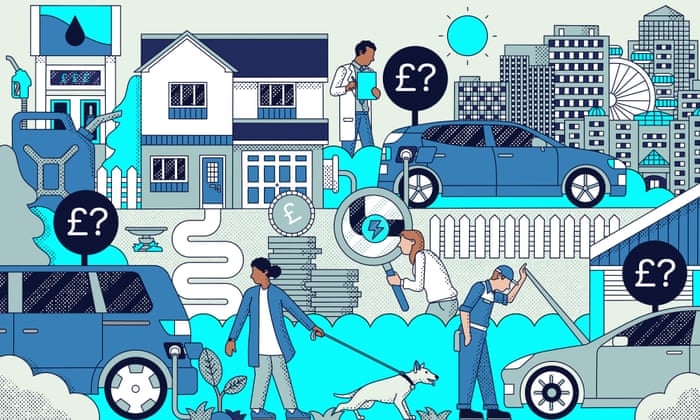Last year was a painfully expensive one for most of us: I have four teenage boys at home and it felt as if we needed an additional overdraft for the weekly supermarket shop alone (since when was a family tub of butter £7? And how do the boys go through one every five days; are they moisturising with it?).
When household budgets are this squeezed, the monthly cost of financing and running a car becomes eye-wateringly clear. And that means that, when it comes to cars, while most of us want to do our bit for the planet, the first question we ask, is whether we can afford to.
And that is what I am most frequently asked about – not just by readers and drivers coming to Auto Trader, where I’m editorial director, but also by friends and family. They want to know whether an electric vehicle (EV) will save them money over the course of ownership, or cost more.
If you’re buying brand-new, then yes, they are still typically 36% more expensive than the petrol or diesel equivalent, according to the latest marketplace data from Auto Trader. But our data also shows that only 10% of us buy new cars.
The other factor that worries people is insurance premiums, which are still higher for electric cars than petrol or diesel cars, as the insurance industry has taken advantage of a lack of data around reliability and repairs. However, given that EVs have fewer moving parts to go wrong and don’t actually catch fire more often than petrol cars, we should see insurance pricing eventually draw closer.
Now for the good financial news!
First, prices of new electric cars are coming down rapidly. The average discount on a new one on Auto Trader is currently 10.6%, compared with 7.7% for non-electric cars. This is because competition among car brands for your hard-earned cash is hotting up. That race is being driven by Chinese brands coming into the UK – led by BYD (which has just knocked Tesla off top spot for global electric car sales), Ora and Omoda – as well as MG and Tesla itself, which lowered its prices last year. Expect pricing to go in one direction only in 2024.
Second, used EVs are surprisingly cheap. With more coming on to the market after their three-year finance deals are over, supply has increased. According to adverts in 2023 on Auto Trader, they are now often as cheap as their petrol alternatives. For instance, you can buy a three-year-old Renault Zoe (electric) for the same price as a three-year-old Renault Clio (petrol), with an average price of about £13,000.
And always ask yourself what you really need: is a big SUV absolutely essential, or might a cheaper electric hatchback with a smaller battery work just fine for your mileage?
Finally, running costs are lower than they are for fossil fuel cars. If you have off-street parking and can install a home charger to use overnight on an off-peak tariff, it costs a fraction of petrol or diesel prices to charge your electric car. I set my car’s charging timer for between midnight and 5am when my electricity is cheapest, and it costs me less than £5 to drive 200 miles, a distance that could cost £30-£40 in a petrol car. If you have to rely on public charging, research your cheapest public rapid charging points.
There are many other pluses: you don’t pay ultra-low emission zone charges on electric cars; there’s currently no vehicle excise duty on them; servicing is cheaper as there are fewer parts; and there’s still a tax break on company EVs … it all adds up.
So, electric cars are not as expensive as you might think. As you explore this new world, remember, fortune favours the brave, curious and determined.
Erin Baker is an experienced motoring journalist and campaigner, and the editorial director at Auto Trader, the UK’s largest automotive marketplace. Learn all about going electric with more real-world advice here

